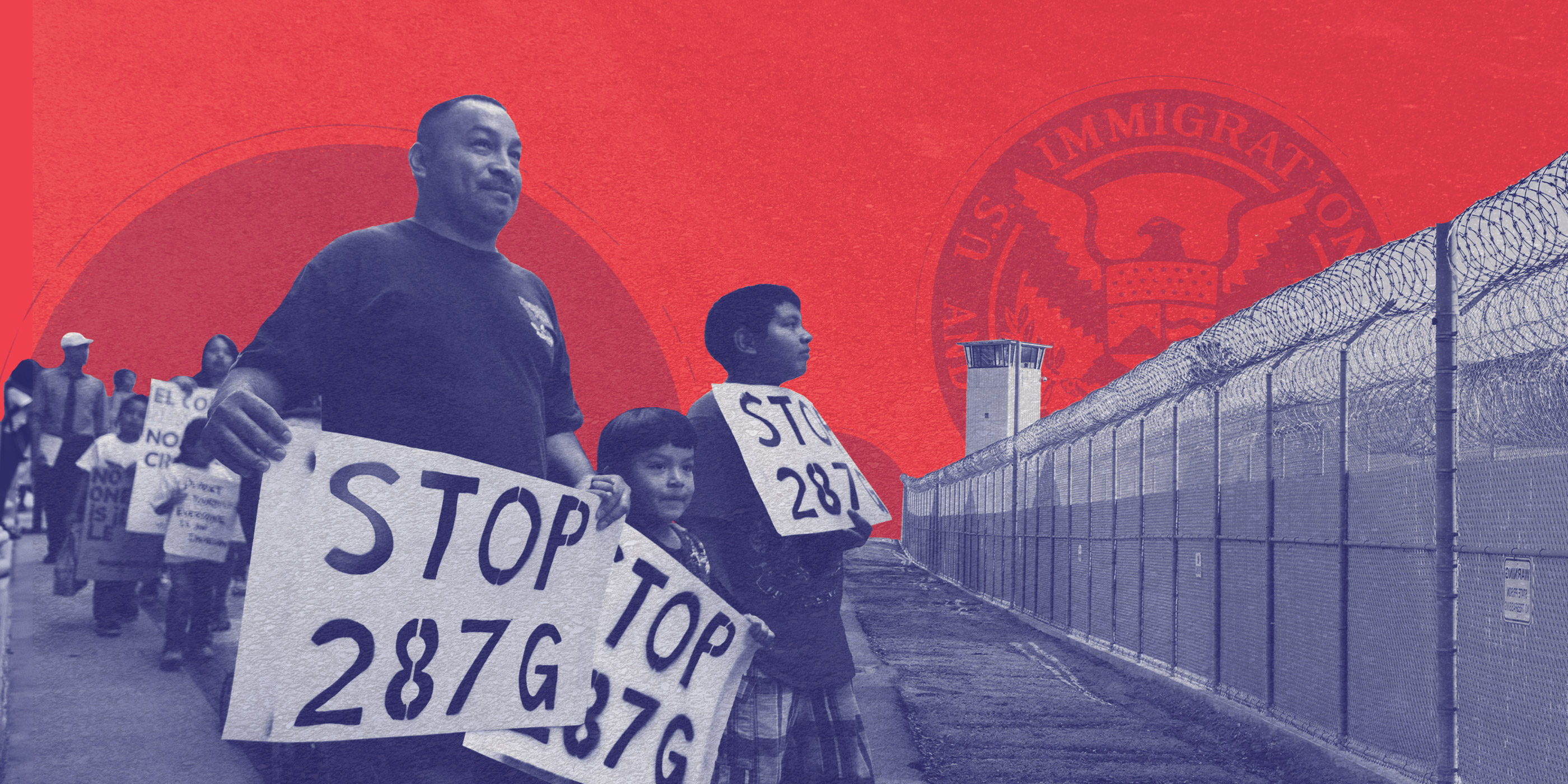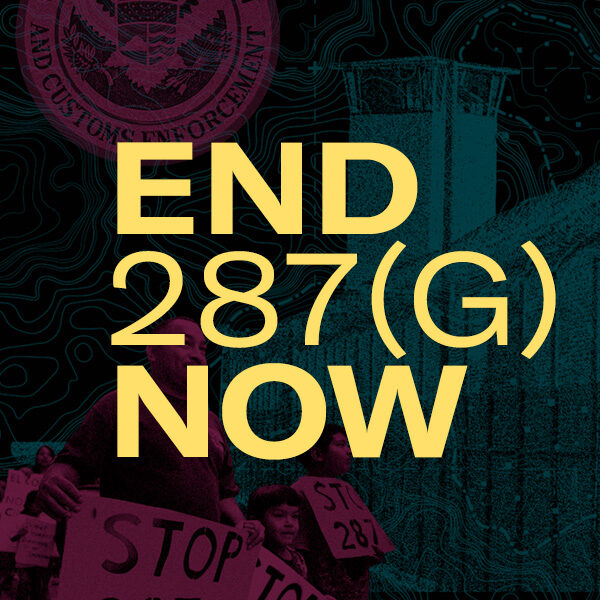Stop ICE From Empowering Racist Sheriffs: End 287(g) Agreements

Stop ICE From Empowering Racist Sheriffs: End 287(g) Agreements
For years, sheriffs notorious for racism, xenophobia, and civil rights violations have been able to target and attack immigrants in their communities by participating in a program known as 287(g). This program is a set of partnerships between Immigration Customs and Enforcement (ICE) and state and local law enforcement agencies that effectively turns local officials into ICE agents. Even though the sheriffs involved in this program have engaged in well-documented abuses, the Biden administration continues to partner with – and empower – them.
Last updated on May 16, 2024
Read the Report: License to Abuse: How ICE’s 287(g) Program Empowers Racist Sheriffs

Drawing on nearly a year of research and legal analysis, this report provides an overview of ICE's 287(g) program, including its administrative history, its current functioning, and its impact on immigrant populations and broader communities. With strong recommendations for federal, state and local governments, this report investigates the unjust impacts of the 287(g) program and ways for the government to remedy the harm.
Read More
Number of Agencies With 287(g) Agreements By State
ICE has 142 state and local partners in the 287(g) program. Explore the map below for a state-by-state listing of ongoing agreements.
ICE Program Foments Abuse, Hatred, and Fear — and Makes Us All Less Safe
Featured Stories

As Sheriffs Quit ICE, Joe Biden Can Lead the Way in Restoring Trust
Biden has the power to end one of ICE’s most pernicious programs.
As Sheriffs Quit ICE, Joe Biden Can Lead the Way in Restoring Trust
The Biden Administration Can Make Us All Safer: End ICE Collaboration Programs
This blog is the third in a series outlining a reimagined, just, and humane immigration system for the United States.
The Biden Administration Can Make Us All Safer: End ICE Collaboration Programs
ICE’s Detention Oversight System Needs an Overhaul
Effective oversight and transparency are not enough, we need to shut down ICE's mass immigration detention machine.
ICE’s Detention Oversight System Needs an OverhaulFour Measures of Sheriffs with 287(g) Agreements
Records of Anti-Immigrant Hate & Xenophobia
Fifty-nine percent of participating sheriffs have records of making anti-immigrant statements in their capacity as sheriff, according to a 2022 ACLU review. Most commonly, we found that these sheriffs villainize immigrants as threats to public safety, often over-emphasizing the immigration status of individuals who have been charged with crimes.
The Trump administration signed agreements with local law enforcement agencies with egregious records of anti-immigrant, dehumanizing, and racist statements. Even as the Biden administration has departed from the Trump administration’s fear-mongering rhetoric about immigrants inside the United States, these 287(g)-participating sheriffs continue to create a climate of fear for immigrants and their families. The anti-immigrant sentiments expressed by many 287(g)-participating sheriffs not only result in unfair, and potentially unlawful, enforcement practices that harm immigrant communities, but also undermine public safety at large.
Select from menu
Records of Anti-Immigrant Hate & Xenophobia
Fifty-nine percent of participating sheriffs have records of making anti-immigrant statements in their capacity as sheriff, according to a 2022 ACLU review. Most commonly, we found that these sheriffs villainize immigrants as threats to public safety, often over-emphasizing the immigration status of individuals who have been charged with crimes.
The Trump administration signed agreements with local law enforcement agencies with egregious records of anti-immigrant, dehumanizing, and racist statements. Even as the Biden administration has departed from the Trump administration’s fear-mongering rhetoric about immigrants inside the United States, these 287(g)-participating sheriffs continue to create a climate of fear for immigrants and their families. The anti-immigrant sentiments expressed by many 287(g)-participating sheriffs not only result in unfair, and potentially unlawful, enforcement practices that harm immigrant communities, but also undermine public safety at large.
Inhumane Immigration & Border Enforcement
Racial Profiling and Other Civil Rights Violations
Records of Inhumane Conditions in Prisons and Jails
Read the Report: License to Abuse: How ICE’s 287(g) Program Empowers Racist Sheriffs

Drawing on nearly a year of research and legal analysis, this report provides an overview of ICE's 287(g) program, including its administrative history, its current functioning, and its impact on immigrant populations and broader communities. With strong recommendations for federal, state and local governments, this report investigates the unjust impacts of the 287(g) program and ways for the government to remedy the harm.
Read More

